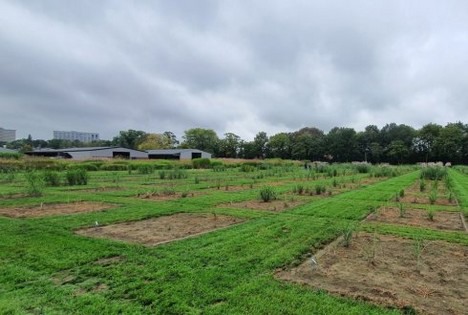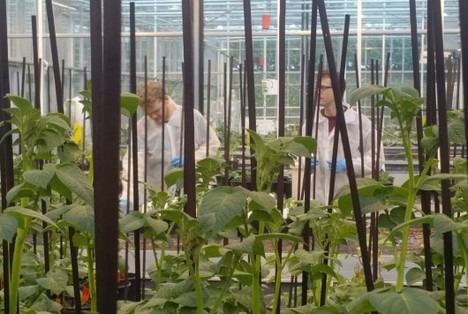Peter Groot Koerkamp, Professor of Agricultural and Bioresource Engineering at Wageningen University & Research (WUR), receives a Crossover grant of 7 million euros from the Dutch Research Council (NWO). The grant was awarded to the SYNERGIA programme, which carries out research into agricultural production systems. Groot Koerkamp is the coordinator of the programme.
In total, NWO is allocating over 39 million euros with the Crossover programme to five large, interdisciplinary research consortia. The Dutch funding institution wants to make progress on a number of major social and economic issues.

About SYNERGIA
Dutch agriculture faces major sustainability challenges, particularly in terms of environmental impact, suitable workforce, and social acceptance. Current production systems can only be improved to a limited extent.
The goal of the SYNERGIA research programme (SYNERGIA stands for “SYstem change for New Ecology-based and Resource efficient Growth with high tech In Agriculture”) is to develop and integrate fundamental knowledge from the biological, technical, and social sciences for the next generation of sustainable agricultural systems, based on the new concept of “technology-4-ecology-based farming” (T4E-farming).
Top researchers from five Dutch universities (in addition to WUR, these are: TU Eindhoven, TU Delft, University of Twente, and Radboud University Nijmegen) will do this using three examples that represent the diversity of Dutch agriculture and offer opportunities for synergy: greenhouse horticulture, dairy farming, and arable farming.

Partners
Important partners in the SYNERGIA programme are: technology and innovation centre OnePlanet, TiFN (top institute Food & Nutrition), and various parties from the business community.
With the approval of the NWO SYNERGIA programme, the AGROS project, financed by the top sectors Agri & Food and Horticulture and Propagation Materials, will also start. In the AGROS project, the fundamental knowledge and technology from the SYNERGIA project will be integrated and further developed for use in greenhouse horticulture, arable farming, and dairy farming.
Research into the lifestyle of elderly people also to receive funding
WUR is also involved in another Crossover programme: MOCIA (Maintaining Optimal Cognitive function In Ageing). Due to the ageing population, the number of elderly people with cognitive deterioration is increasing. The MOCIA programme focuses on being able to identify an increased risk of cognitive deterioration and improving prevention by developing a personalised lifestyle intervention.
The MOCIA programme is coordinated by the Radboud University, but various WUR research groups also contribute to it. This is especially the case for expertise in evaluating the impact of dietary and lifestyle changes on (cognitive) health.
The programme also looks at designing personalised e-health interventions to support a healthier lifestyle. The mechanisms responsible for the health effects caused by the intervention will also be investigated.
Source: Wageningen University & Research
